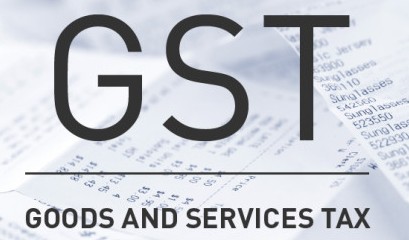

GST: Short Term Costs But Long Terms Benefits
After a two decade long political battle, on July 1st, India implemented its biggest indirect tax reformsince independence with the motto of one nation, one market, one tax. Goods and services tax (GST) is mainly a tax on supply of goods and services.Economists debate that the impact of GST on macroeconomic indicators and businesses is likely to be positive in the long term, however, in the short term, the rushed implementation of GST has raised a lot of confusion and concern from different sectors. By Sampriti Sarkar
First publised on 2017-08-26 09:11:29
It is believed that the removal of tax barriers and a uniform tax rate will pave the way for a unified national market leading to economies of scale in production and efficiency in supply chain.GST was deemed to be a win-win situation for all economic agents. Manufacturers and traders would benefit from less procedural time and transparentruleswhile consumers will be paying less for the goods and services. At the same time, the government revenues will also increase due to less revenue leaks and by bringing more small companies into the tax net.
However, the GST implementation has also increased the compliance cost which is often high for small scale manufacturers and traders, thus preventing smooth functioning of the business. The new tax regime will force many companies to restructure their operations. Big companies with an existing supply chain in order will thus benefit more and can offset taxes paid on inputs. In the short run, these small businesses may end up transferring some of the costs to the consumers by charging higher prices.
The tax is believed to facilitate the shift from the unorganised sector to the organised sector. However, with this, there is some uncertainty over job creation which the economy will suffer in the short run. Some sectors like the fast moving consumer goods sector will benefit from the GST due to the presence of big unorganised market while a lot of businesses may be troubled.
In the long term, GST may lead to reduction of inflation as the cascading effect of taxes would be eliminated. However, in the short term, inflation has almost doubled after implementation of GST.
The competitiveness of the nation will also increase in the foreign markets due to lower transaction costs, abolition of custom duties on exports and the ease of doing business. GST is not applicable to goods and services exported from India thus giving advantages to the NRIs involved in export business.
However, there are worries over blockage of capital, even for over six months in many cases, since exporters have to arrange funds for GST, which will be refunded to them upon exports, thus decreasing the competitiveness of the export sector.
Moreover, the real-estate sector will also be affected in the short term since ready-to-move in apartments will get costlier under GST as developers with large unsold inventories are likely to pass the burden ofhigher tax on home-buyers.
The main advantage of GST is its location neutrality, thus abolishing all the inter-state barriers with respect to trade and investment.With GST all states in India will have uniform tax rate, which will bring down the logistics costs for many businesses. Thus the Indian start-up community stands to gain considerably from the implementation of GST.
While the GST will simplify tax structure, it will increase the burden of procedural and documentary compliance. Number of returns will increase accordingly and also the extent of information.Cash flow and working capital of businesses which maintain large inventory of goods in different states will be adversely affected as they will have to pay GST at full rate on stock transfer from one state to another.
Perhaps, one of the biggest points of criticism for the government has been the imposition of 12 per cent tax on sanitary napkins.
The new indirect tax reform is likely to bring efficiency, transparency and improved supply chain to benefit the sector participants. With better supply chain and development of the small businesses,the full advantages of GST can be realised. However, ways have to be found for lowering the overall compliance cost and necessary steps should be taken for smooth transition of the system. The governments idea of GST as a good and simple tax will be realised when the entire economy works as a whole to facilitate this transition and bear with the short term problems to reap the benefits in the long term.











